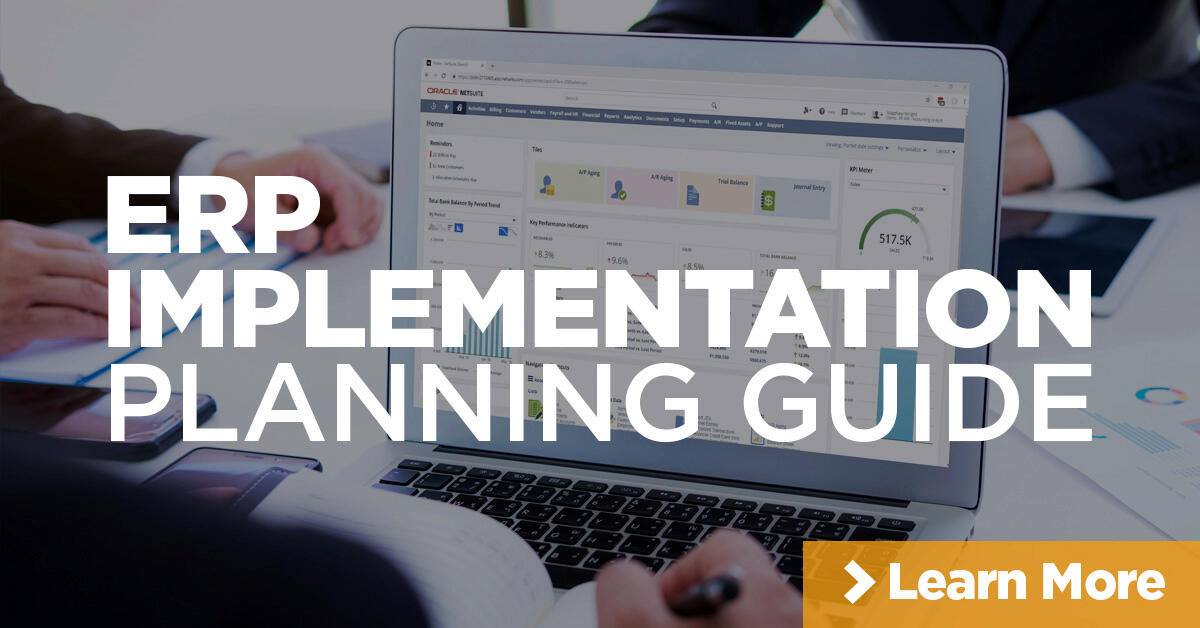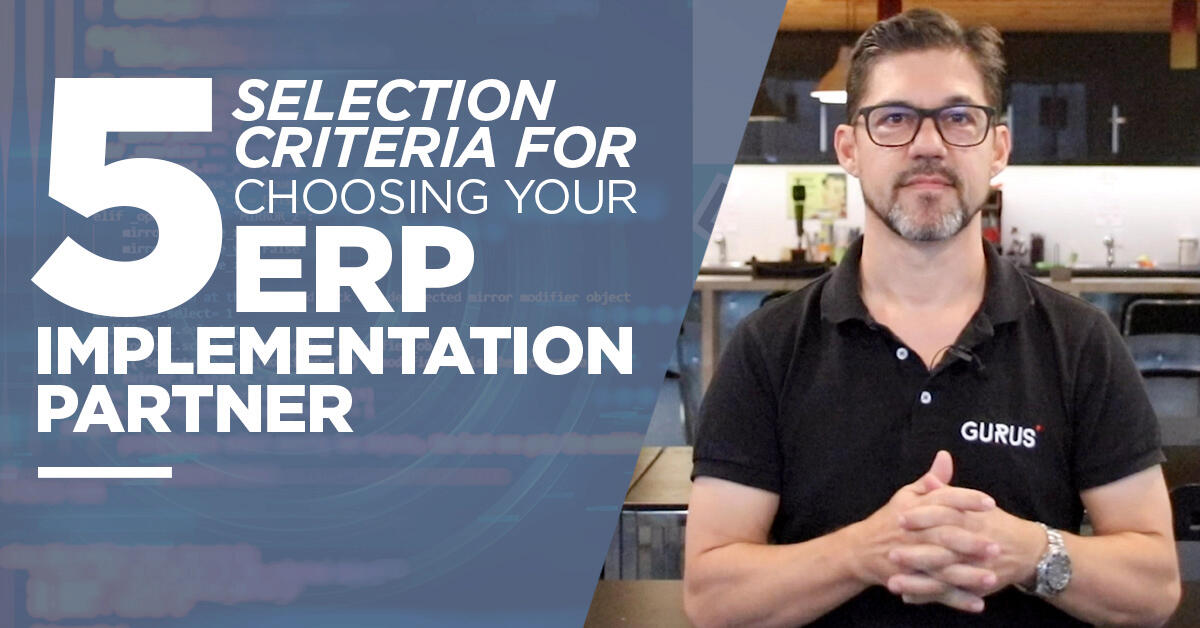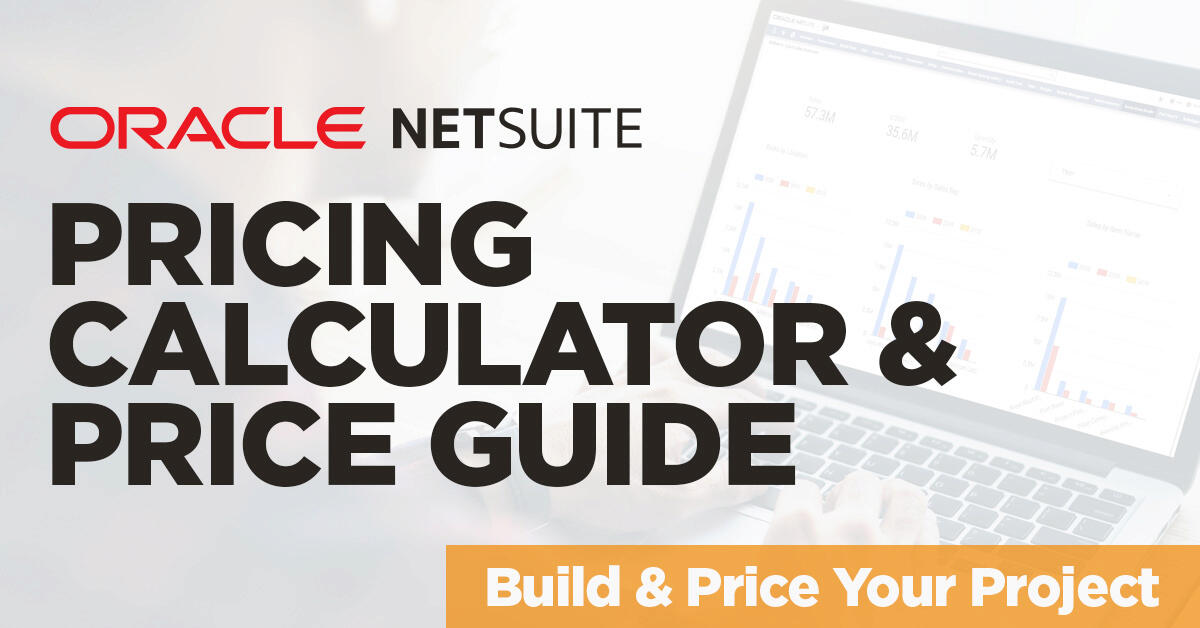(3 Min Read)
Oracle NetSuite ERP Implementation RFP Guide
In this article, I’ll be answering the following three popular questions we get regarding RFPs:
- Do I really need an RFP for My ERP Implementation?
- What are some tips for building a successful Oracle NetSuite ERP Implementation RFP?
- And why your RFP might not be getting you accurate pricing
First of all, ERP, RFP - we’re throwing a lot of vernacular around here. An ERP is your Enterprise Resource Planning system, while your RFP is your Request for Proposal.
When you’re implementing a new ERP system, like Oracle NetSuite, you’re looking at a massive undertaking for your company. I like to compare ERP projects to heart and lung surgeries while running a marathon. It’s not easy!
The first step is the software selection, during which you will consult with a number of varying software vendors. Once you’ve chosen the right system, next you want to make sure you have the right surgeons.
Facing a long list of possible solutions, companies seek help to choose the right product for them. They hire a firm which specializes in gathering requirements and helping them in selecting the right product.
This is where it gets tricky. The firm they hired selects a long list of software solutions and partners that specialize in their implementation. They then ask each of them to fill a long checklist on whether or not their software can fulfill the list of their client’s requirements.
Ask A Question About NetSuite Pricing to Our ERP Specialists
Do you absolutely need to do this?
The short answer is no.
While an RFP works in concept, there are a number of reasons that it can do more damage than good.
First, they will make your executive team sit on day long demos of every solution. If they select 5 solutions, that is 5 days of valuable time your executives will be spending in a conference room. We have seen companies presented with 10 different solutions!
A good firm will understand your needs and will make a first cut for you.
Second, Your ERP request for proposal is created based on you or your team’s assumptions about your needs. And guess what, the missing functionality of your current system will be high on the list, but what about what your system already does and you assume all others do?
The firm you hired to help you with the selection should come up with a maximum of 3 solutions based on their experience. You do not need a day long demo to see the look and feel of an application. They should provide you with a list of pre-recorded demos (as an example, you can GURUS Solutions has a number of demo videos and walkthroughs for NetSuite) on youtube that you can selectively watch based on your area of interest.
At that point, they have helped you to determine if you want a cloud based solution or not, and if your company’s culture will be more compatible to a certain vendor, like Microsoft, NetSuite, Oracle, SAP or even open source.
The reality is that most mid-market ERP systems can do what you want with a complementary solution or some customization.
So, what do I suggest doing to ensure you have a successful RFP process to select your ERP software?
My firm, GURUS Solutions, has been an Oracle NetSuite partner for 15 years. Here is what you should expect from a request for proposal and what to take into account.
When we get an RFP, we always advise a more in-depth conversation as opposed to filling the checklist of questions, as we will ask targeted questions to help you identify the real gaps that need to be addressed during your project. ERP implementations are messy and not without their obstacles. There is no successful boxed-in approach that will guarantee you the best results.
So, let’s go over that again -
- An RFP will help your organization gather a list of your obvious requirements and help weed out some of the biases within your team before the start of the project (this facilitates things long term)
- Keep it concise. If you send out a checklist that is too long and detailed, most partners will check yes to all your requirements - which defeats the purpose
- Don’t feel bound in your discussion with a partner by what’s on the RFP. Push them to challenge you and point out the gaps, not just check the boxes on your list.
- Ask your advisor to select a partner for every solution they recommend. You can watch my video on the 5 selection criteria for choosing your ERP implementation partner for more tips.
The role of an ERP implementation partner is to ensure that your ERP is set up to fulfill all of your unique business requirements with its extensive features and functions. This is something that is easier said than done. You need to find a partner with consultants that satisfy a number of target criteria:
- They have experience with your industry and similar businesses to yours
- They understand what makes your company unique

- Your teams have good chemistry
- They are ready to drive into your processes and deconstruct them to ensure they translate fully into your new system
Considering Oracle NetSuite ERP?
To make your life even easier, use the GURUS online NetSuite Price Calculator. The ERP price calculator gives you an accurate estimate of your licensing cost and helps you choose the right edition and add-ons for your company, if you’re considering NetSuite. For more info on NetSuite pricing, be sure to check out the NetSuite Pricing Guide, which can be found underneath our calculator.




